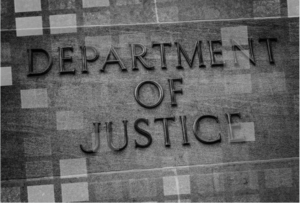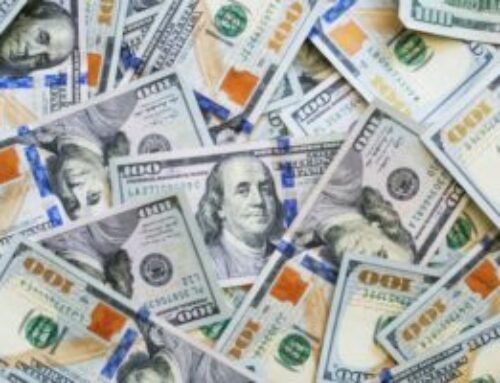Last week (August 1), the Department of Justice (DOJ) formally launched its much-anticipated Corporate Whistleblower Awards Pilot Program. It is designed to fill some of the gaps among the existing whistleblower rewards programs — primarily the False Claims Act and the SEC, CFTC, FinCEN, and IRS whistleblower programs — by focusing on criminal activity that generally falls outside the scope of these programs. Under the new pilot program, “a whistleblower who provides the Criminal Division with original and truthful information about corporate misconduct that results in a successful forfeiture may be eligible for an award.”
Here are the details of the pilot program, as set forth in the accompanying Guidance and supporting Fact Sheet DOJ released along with the program launch:
Who Is Eligible
Individuals eligible for an award under the pilot program are those who voluntarily provide DOJ with original, non-public information that leads to a criminal or civil forfeiture exceeding $1 million. The information must come from the whistleblower’s “independent knowledge” or “independent analysis.” This means the program allows for both company “insiders” with first-hand knowledge of wrongdoing and company “outsiders” who extrapolate wrongdoing from publicly available information. Information relating to an existing government investigation may still qualify under the program if it materially adds to the government’s knowledge base.
Who Is Not Eligible
Individuals not eligible for an award under the program include: (i) those who are or would be eligible for an award through another whistleblower rewards program for reporting the same criminal activity; (ii) certain government officials, employees, or contractors and their family members; (iii) certain foreign officials; (iv) leading participants in or beneficiaries of the criminal activity; and (v) certain high-level officers, directors, compliance professionals, and outside accountants, investigators, or consultants of the offending company. However, these exceptions do not apply for conduct involving national security, crimes of violence, or imminent financial, physical, or patient harm.
Covered Wrongdoing
The pilot program only covers the following four “Subject Areas” of criminal wrongdoing:
Financial Institution Crimes. This covers “schemes involving money laundering, anti-money laundering compliance violations, registration of money transmitting businesses, and fraud statutes, and fraud against or non-compliance with financial institution regulators.”
Foreign Bribery. This covers foreign corruption and bribery by companies outside the jurisdiction of the SEC and FinCEN Whistleblower Programs, and includes violations of the Foreign Corrupt Practices Act, the Foreign Extortion Prevention Act, and the money laundering statutes.
Domestic Bribery. This covers bribes or kickbacks to federal, state, territorial, or local elected or appointed officials and officers or employees of any government department or agency.
Healthcare Fraud. This covers fraud against private insurers and patients that falls outside the jurisdiction of the False Claims Act.
Right to Award
An eligible whistleblower whose information leads to a successful forfeiture of more than $1 million may qualify for an award under the pilot program in three ways. First is if the whistleblower’s information caused DOJ to open an investigation, reopen a closed investigation, or inquire about different conduct as part of an existing investigation. Second is if the whistleblower’s information “significantly contributed to successful forfeiture” concerning conduct already under DOJ investigation. And third is if the whistleblower reported internally, which caused the company to report the whistleblower’s information to DOJ and caused DOJ to open an investigation or take an existing investigation in a new direction, or which significantly contributed to a successful forfeiture. In addition, the whistleblower must also have provided DOJ the same information within 120 days of reporting internally.
Amount of Award
The total amount of any award under the program for a particular matter, whether going to one or multiple whistleblowers, is as follows: (i) up to 30% of the first $100 million in net proceeds forfeited (with a presumption of 30% for the first $10 million); (ii) up to 5% of any net proceeds forfeited between $100 million and $500 million; and (iii) no award on net proceeds forfeited above $500 million. Factors that may increase the size of the award include: the significance of the information the whistleblower provided; the level of assistance the whistleblower provided; and whether the whistleblower reported the information internally before going to DOJ. Factors that may decrease the award include whether the whistleblower participated in or benefitted from the wrongdoing; the amount of any delay in reporting internally and to DOJ; and whether the whistleblower served in a management role over those involved in the misconduct.
DOJ Discretion
The determination of whether an award will be made to an eligible whistleblower and in what amount is subject to DOJ’s sole discretion. This means that even if an eligible whistleblower otherwise satisfies the conditions for receiving an award, DOJ may still deny an award for whatever reason it chooses. DOJ’s ultimate decision is not subject to any review, either administratively or through the courts.
Confidentiality
DOJ will not publicly disclose any information that would reveal the identity of a whistleblower under the program unless required to in a judicial or administrative proceeding. To further DOJ’s commitment to whistleblower confidentiality, the program allows for anonymous submissions through an attorney.
* * *
The DOJ Criminal Division’s Money Laundering and Asset Recovery Section will manage the program as a three-year initiative during which time the agency will regularly assess any necessary changes to the program’s design and implementation. At the end of this 3-year pilot period, DOJ will determine whether the program will be extended or modified and whether any Congressional action is required to further strengthen the program.
In a statement she released in conjunction with the program launch, Deputy Attorney General Lisa Monaco stressed the long history of whistleblowers helping the government uncover fraud and misconduct, and the “indispensable” role they have played more recently under the government’s other whistleblower rewards programs:
“With this program we’re doubling down on a proven strategy to ferret out criminal activity that might otherwise go unreported. Law enforcement has long offered rewards to coax tipsters to report crimes — from the “Wanted” posters of the Old West to the reforms in Dodd-Frank that created whistleblower programs at the SEC and the CFTC. Those agencies alone have received thousands of tips, paid out many hundreds of millions of dollars, and disgorged billions in ill-gotten gains from corporate bad actors.”
She also highlighted the carrots-and-sticks enforcement approach the pilot program is designed to foster by incentivizing companies to come clean when a whistleblower comes knocking. In this regard, the program provides a potential escape hatch for corporate wrongdoers that voluntarily self-report under the Criminal Division’s Corporate Enforcement and Voluntary Self-Disclosure Policy within 120 days of receiving a whistleblower complaint and before DOJ contacts the company. As Ms. Monaco put it, “[t]here’s a synergy to these disclosure programs: together, they create a multiplier effect that encourages both companies and individuals to tell us what they know — and to tell us as soon as they know it.”
In her companion statement on the program launch, DOJ Criminal Chief Nicole M. Argentieri echoed this two-sided approach to fraud enforcement that underlies the program:
“With today’s announcements, we are telling employees: If you are aware of criminal misconduct at your company, now is the time to come forward to the Criminal Division. And our message to company executives and leadership is also clear: We are using more tools than ever before to identify corporate misconduct, so now is the time to make the necessary compliance investments to help prevent, detect, and remediate misconduct. And when misconduct does occur and companies are considering whether to make a self-report, please remember this simple message: Call us before we call you.”
So, if you have information of potential wrongdoing that falls into one of the four subject areas covered by the pilot program, DOJ has made it very clear it wants to hear from you. DOJ wants you even if you are unsure of whether your information qualifies for another whistleblower rewards program. DOJ advises in that case to submit information to both programs.
DOJ has been equally clear with its message to companies — do not get in the way of whistleblowers. Do not retaliate against them for coming forward. And do not take any action to impede them from reporting to DOJ, including through confidentiality or severance agreements that restrict or dissuade whistleblowers from reporting wrongdoing. They should be met with a warm embrace instead.
If you would like more information about the DOJ pilot program, or any of the other whistleblower rewards programs, please do not hesitate to contact us and we will connect you with an experienced member of our whistleblower team for a free and confidential consult.
Read DOJ Launches Pilot Whistleblower Rewards Program That Could Be A Game-Changer at constantinecannon.com






Leave A Comment